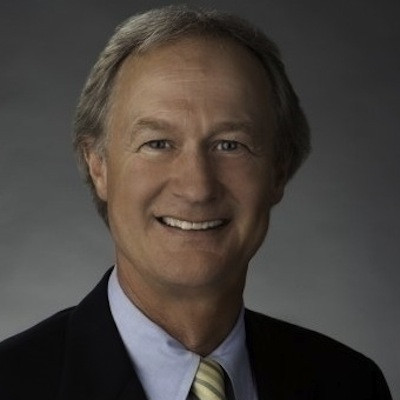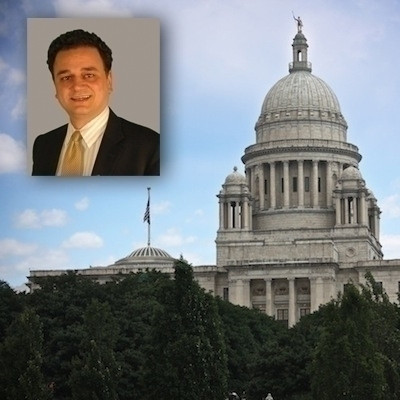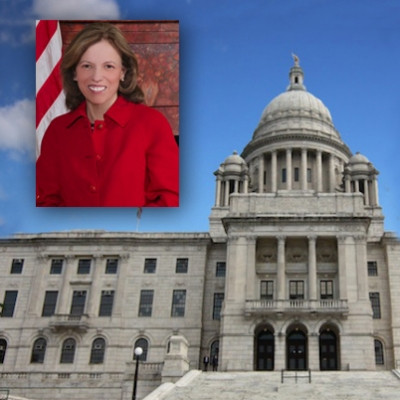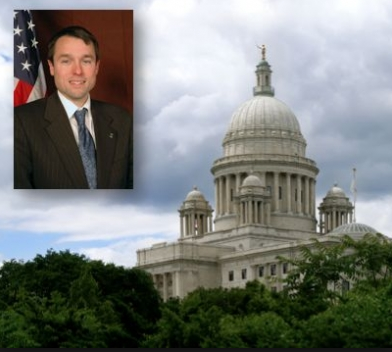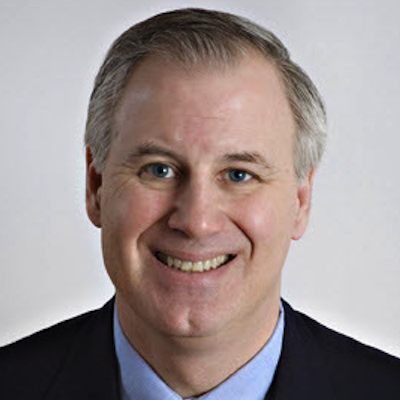Battle Heats up over Minimum Wage in RI Governor’s Race
Monday, January 27, 2014
To raise -- or not to raise -- the minimum wage in RI? That is one of the questions in the 2014 governor's race at the moment.
"Rather than looking at ways of retaining and creating jobs, candidates running for office have found a new way to attract voters who earn a minimum wage in Rhode Island, namely, increase the minimum wage. This is the candidates way of giving "street money" to get people to the voting booths," said URI Distinguished Professor of Business Edward Mazze. "To support their position on raising the minimum wage, they may be using studies that have weaknesses in their methodologies. I recommend further study before doing anything. Minimum wage is not a competitive tool in attracting businesses."
However, gubernatorial candidates General Treasurer Gina Raimondo and Providence Mayor Angel Taveras, and supporters in the community including the Economic Progress Institute, are arguing for an increase over the current $8.00 level of up to $10.10.
GET THE LATEST BREAKING NEWS HERE -- SIGN UP FOR GOLOCAL FREE DAILY EBLAST"The minimum wage isn't designed to solve every economic problem facing the state, but it very important to improving the economic well-being of workers and generating economic activity. Putting more money in the pockets of workers will put more money in the cash registers of locals businesses which will increase demand and help create jobs," said Kate Brewster with the Institute, who have been pushing for the increase to $10.10 since last year.
Proponents on the Record
Eric Hyers, campaign spokesperson Raimondo, told GoLocal, "As she said in her kickoff speech, Gina strongly believes that we need to increase the minimum wage. But we can't wait to provide a meaningful adjustment until 2018. Just as our entire congressional delegation is fighting for swift action to raise the minimum wage in two years at the federal level, we should be doing the same right here in Rhode Island."
Hyers continued, "Gina will work to raise the minimum wage to $10.10 by 2015 and then index it to the cost of living so that politicians can't play games with people's lives. Two-thirds of minimum wage earners are women so a raise would immediately help women across Rhode Island and their families. People are really struggling and we need to act with urgency to help out working families."
Last week, Taveras sent an "urgent petition" to supporters proposing raising the minimum wage to $10.10. "If you are ready to give 65,000 hard-working Rhode Island families the raise they need, click here to show your support," he wrote.
"It is exciting to see issues that are critically important to the economic security of Rhode Islanders being raised so early in this campaign," said Brewster. "We should continue to build on the progress that has been made over the last two years by making incremental increases so that we can reach a more adequate wage for hardworking Rhode Islanders."
Roger Williams University Professor of Political Science June Sager Speakman told GoLocal, "In my opinion, the increase in the minimum wage is certainly in the best interest of the 25,000 or so people who would immediately benefit from it. And, many economists believe that the negative impacts on the businesses that pay these wages are minimal and can be easily absorbed by the businesses through productivity increases, slight price increases and so on. We need to hear more from all the candidates about their plans for job creation, job training, business development, infrastructure improvements, education. Those are the areas that have broad and deep impact on the state's economy, and ultimately on its workers and businesses."
Speakman spoke to the role that the campaign year played in the debate.
"Campaigns always temper policy discussions....this will not be an issue in the primaries because there is agreement within the parties. It's the general election where the issue will come into play. And, as always, to win, candidates need more votes than the other guy, but also need to dollars to campaign for those votes," said Speakman. "Policies that benefit the working and middle class have resonance with lots of voters; policies that appear hostile to the business community alienate some of the big donors. Populist themes are picking up steam nationally, and in the media. If that is maintained, that creates an atmosphere that supports worker-friendly policy positions."
Against an Increase
"Every member of the business community that I have spoken with agrees that the Democratic plans for a huge minimum wage increase would be wrong for the Rhode Island economy and for the people who need jobs. It will continue to be a significant issue for at least the early part of the campaign while the General Assembly is considering what to do," said Republican gubernatorial candidate Ken Block. "I will be active in opposing it and encouraging others to help me put pressure on the legislature. If the Assembly does the right thing and decides against the increase, I expect the Progressive Democratic candidates for Governor will continue pushing it to rally their base in the fall, so I’ll continue to oppose it."
Block cited specific research examples to support his position. "Boosting the minimum wage is a job killer. In an exhaustive examination of research conducted over the last 20 years, economists David Neumark (UC-Irvine) and William Wascher (Federal Reserve Board) determined that 85 percent of the best research points to a loss of jobs following a minimum wage increase," said Block.
He continued, " A high minimum wage is also touted as a tool to reduce poverty, but this claim fails to stand up on closer examination. In the 28 states that raised minimum wages in the four years prior to passage of the last federal minimum wage increase, economists from Cornell and American Universities, writing in the Southern Economic Journal, found no associated reduction in poverty rates. Census Bureau data show that approximately 60 percent of people living in poverty are not employed, so they would get no benefit from a higher minimum wage. Census Bureau figures also show that the family income of the majority of minimum wage workers is $50,789, far above the poverty line."
"I think supporters of the minimum wage increase are sincere and well-intentioned, and I share their hope for a state economy that supports well-paying jobs for everyone who wants to work. They have been convinced by Progressive partisans like Treasurer Raimondo and Mayor Taveras that government can impose this result," said Block. "However, I’m convinced – and the facts bear me out – that giving Rhode Island the highest minimum wage in New England simply won’t do the job. What we need is a flourishing market economy with government policies that welcome the investors who create jobs."
Mike Stenhouse with the RI Center for Freedom and Prosperity said that a raise to $10.10 would cut 3400 jobs from the Rhode Island economy.
"It's one of the most politically misunderstood topics out there -- it's a tool used by the left to their advantage," said Stenhouse. "I'd like to see the studies that Taveras and Raimondo are pointing to. "
Calls for Reform
Gary Sasse, the former Director of Administration, said he would support an increase in the minimum wage -- if it was linked, however, to "structural economic reforms."
"Nobody who works a full-time 40 hour a week job should live in poverty and be dependent on government assistance. Therefore, I support an increase in the minimum wage. However, at the state level an increase in the minimum wage would best meet its objective if it was linked to structural economic reforms," said Sasse. "These would include tax and regulatory relief to reduce the cost of doing business in a highly cost-competitive environment. It should also encompass education reforms and a more aggressive workforce development program funded at scale. This will require additional state spending for education and workforce initiatives."
URI economist Len Lardaro offered his views on the debate. "What's raising the minimum wage going to do? You're treating symptoms, not problems. The problem is the labor force is grossly inadequate in terms of skill levels. K-12 performance is getting better, but far below where we need to be."
"I've harped on this...Rhode Island needs in-house due diligence," said Lardaro. "You can rename the EDC whatever you want...you can rename it the second coming, you're shuffling the deck. There needs to be a staff of 2 or 3 economists with PhDs and extensive experience detailing the economic impacts of policy changes. We almost never do due diligence."
"It's the most magnificent scam I've ever seen, the legislature does nothing, and then the Governor gets blamed," said Lardaro. "There's nothing he can do, he can't say "this is what we're going to do". The General Assembly holds all the power. It's ironic with the unemployment rate, you have elected officials saying we should stay the course -- I thought when I first read it, I saw "stay the curse".
Related Slideshow: 7 Strategies for Rhode Island Economic Development in 2014
What will it take to move the Rhode Island economy forward in 2014? GoLocal talked with elected officials, candidates, and leaders for their economic development plans in the coming year.
Below are key elements of the economic priorities for Governor Lincoln Chafee, Speaker of the House Gordon Fox, Senate President M. Teresa Paiva-Weed, House Minority Leader Brian Newberry, gubernatorial hopefuls General Treasurer Gina Raimondo and Ken Block, and RI Center for Freedom and Prosperity's Mike Stenhouse.
Related Articles
- NEW: Minimum Wage Hike Will Cost 200 Teen Jobs, Group Says
- NEW: Raising RI Minimum Wage Would Kill 3400 Jobs—Report
- RI State Report: Minimum Wage, Woonsocket + Cutting School Days
- Rob Horowitz: Minimum Wage Boost Good for Rhode Island Economy
- Rob Horowitz: RI’s Minimum Wage Boost Good News For Families
- Aaron Regunberg: Want Economic Development? Raise the Minimum Wage
- State House Report: Budget Passes, Campaign Finances & Minimum Wage
- NEW: Governor Makes Minimum Wage Hike Official
- NEW: Lawmaker Hopes to raise Minimum Wage






